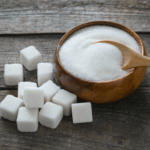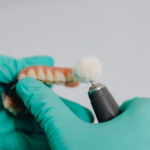Beyond the Brush: How Your Diet Shapes Your Smile
We all know the drill: brush twice a day, floss daily, and visit the dentist regularly. But what if I told you that a significant player in your oral health is something you do multiple times a day without even thinking about it? That’s right – your diet. The food and drinks you consume have a profound and often underestimated impact on your teeth and gums.
It’s not just about avoiding cavities (though that’s a big part of it!). Your diet can influence everything from the strength of your enamel to the health of your gum tissue, and even your breath. Let’s dig into how your eating habits are either helping or hindering your journey to a healthy, happy smile.
The Good Guys: Fueling a Healthy Mouth
Think of your mouth as a mini-ecosystem. Just like any ecosystem, it thrives on the right nutrients.
- Calcium and Phosphorus Powerhouses: These are the building blocks of strong teeth and bones. Dairy products (milk, cheese, yogurt), leafy greens (kale, spinach), fortified plant-based milks, and certain fish (salmon, sardines) are excellent sources. When you give your body enough of these, you’re essentially providing the raw materials to repair and strengthen your enamel.
- Vitamin D’s Role: This sunshine vitamin is crucial for absorbing calcium. Without adequate Vitamin D, even if you’re consuming enough calcium, your body can’t effectively use it for your teeth. Look to fatty fish, fortified foods, and (safely!) some sun exposure for your Vitamin D fix.
- Crunchy Fruits & Veggies: Apples, carrots, celery – these aren’t just good for your body; they’re fantastic for your teeth! Their fibrous texture acts like a natural toothbrush, helping to scrub away plaque and stimulate saliva production. Saliva is your mouth’s natural rinsing agent, neutralizing acids and washing away food particles.
- Antioxidant-Rich Foods (Vitamins C & A): These vitamins are vital for healthy gums. Vitamin C, found in citrus fruits, bell peppers, and broccoli, helps to keep your gum tissue strong and resistant to infection. Vitamin A, abundant in sweet potatoes, carrots, and leafy greens, supports the healthy development of tooth enamel and keeps salivary glands functioning properly.
- Water, Water Everywhere! This is perhaps the simplest yet most powerful tool in your oral health arsenal. Drinking plenty of water, especially after meals, helps to wash away food debris and acids, keeping your mouth hydrated and promoting saliva flow. Fluoridated water, where available, also directly contributes to strengthening enamel.
The Bad Guys: What to Watch Out For
Just as some foods support oral health, others can actively work against it.
- Sugary Culprits: This is the big one. Every time you eat or drink something sugary, the bacteria in your mouth feast on those sugars and produce acids. These acids then attack your tooth enamel, leading to cavities. It’s not just about obvious sweets; hidden sugars in processed foods, sugary drinks (sodas, juices, energy drinks), and even some “healthy” snacks can be problematic. Frequency matters more than quantity here – constant exposure to sugar is worse than occasional indulgence.
- Acidic Foods & Drinks: Even if they don’t contain added sugar, highly acidic foods and drinks can erode your enamel. Think citrus fruits (though beneficial for Vitamin C, moderation is key), vinegar, and, again, those fizzy drinks. The acid weakens the enamel, making your teeth more susceptible to decay and sensitivity.
- Sticky & Starchy Foods: Chips, bread, pasta, and even dried fruits can linger on your teeth and get stuck in crevices. These can be just as problematic as sugary foods because they provide a prolonged food source for bacteria, leading to extended acid attacks.
- Hard Foods: Biting down on ice, hard candies, or unpopped popcorn kernels can lead to chipped or fractured teeth, as well as damage to existing dental work.
Bringing it All Together: Practical Tips for a Healthier Smile
- Balance is Key: You don’t have to eliminate all your favorite treats, but aim for a balanced diet rich in whole, unprocessed foods.
- Time Your Treats: If you’re going to have something sugary or acidic, try to consume it with a meal rather than snacking on it throughout the day. This minimizes the time your teeth are exposed to harmful acids.
- Rinse After Eating: A quick swish with water after meals and snacks can help wash away food particles and neutralize acids.
- Chew Sugar-Free Gum: This can stimulate saliva production, which helps to clean your teeth and neutralize acids.
- Prioritize Water: Make water your primary beverage choice.
- Don’t Forget the Basics: Diet is crucial, but it doesn’t replace regular brushing, flossing, and dental check-ups. They all work together!
Your smile is a reflection of your overall health, and your diet plays an undeniable role in keeping it bright and strong. By making conscious choices about what you eat and drink, you’re not just nourishing your body – you’re actively investing in a lifetime of healthy, confident smiles.








